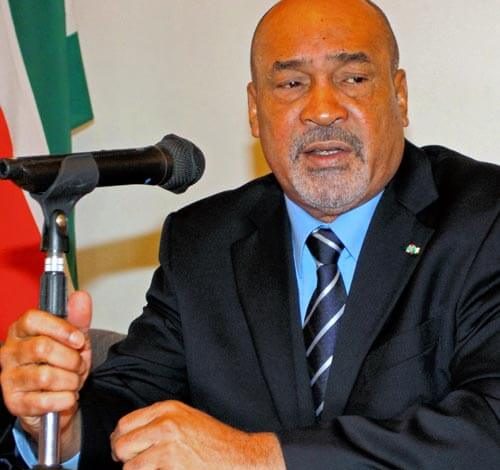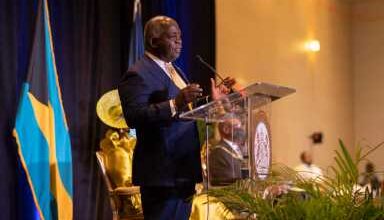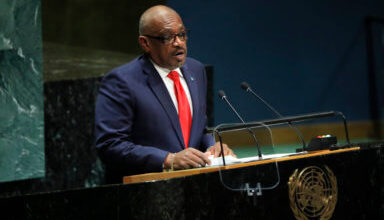MASS MURDER TRIAL

As his mass murder trial crawls to an end, Desi Bouterse is not fearing that well as far as the evidence against him goes.
On trial for the Dec. 8, 1982 killings of 15 governments opponents while he was Suriname’s military strongman, the panel of judges heard this week that Bouterse, 77, was indeed at a Dutch era colonial fort while soldiers were executing the group for allegedly collaborating with the west to reverse a February 1980 coup against the then elected government. The former army chief has persistently denied being there while the four journalists, labor leaders, clergymen and academics were lined up and shot but has accepted collective responsibility because, as he has said, he was the de facto head of the country at the time.
On Tuesday, the judges, witnesses, surviving defendants including Bouterse and related parties visited the fort to get a first hand sense of where the executions had occurred, under what conditions and in what kind of physical space. The riverside fort is ironically located next to the state office where Bouterse had until mid 2020 served two terms as a freely elected president of the Dutch-speaking CARICOM nation of just over 500,000.
Apparently, few people have visited the fortified brick and stone building since the murders more than 40 years ago, a point that was not lost on the former head of state and others as many struggled to remember details of what was located where.
“We followed the dead end as the victims travelled,” Hugo Essed, attorney for surviving relatives, told reporters as the court exited. One conclusion is that all witnesses have stated that they saw Bouterse at one or more moments in the fort on Dec. 8. Whether the moments of shots and the moments of his presence coincided has not clearly emerged. But all things considered, it can be concluded that the witnesses agree that shots were fired at the fort on several occasions during Dec. 8. At what times is unclear,” Essed said.
Hearings will continue on Dec. 16. Court officers like Essed estimate that there could be three or four more rounds and a conclusion of the trial in the first quarter of next year. “We assume that punishment will take place. We heard the president state on the radio a few weeks ago that he assumes that if the people are convicted, the imprisonment will take place. We also assume that.”
For his part, Bouterse had said that December 1982 was a longtime ago, warning that he might not have been able to remember everything in complete detail. Evidence of this emerged when he was asked where his desk had been located at the fort way back then. He could not recall.
“Of course, you try to bring everything back to mind but it doesn’t always work out. It was over 40 years ago. It takes some getting used to. It seems like everything has changed a bit, which is not entirely true,” he told reporters.
Initially, there were more than 20 civilian and military suspects on trial when it started in late November 2007, but some have died, a small group set free and about half a dozen including Bouterse are in the docks participating in the hearings.
In late 2019, Bouterse was jailed for 20 years but he has appealed his sentence even as this aspect of the case is being seen as the last opportunity for him to remain a free man and to continue leading the main opposition National Democratic Party (NDP), which he had formed in the 80s while serving as army chief and head of government.




